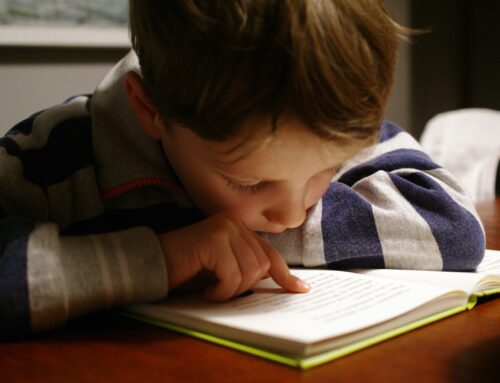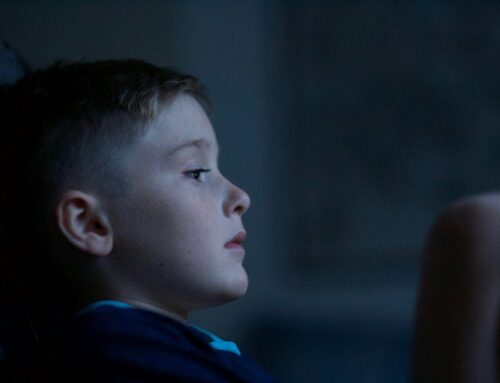Traumatic brain injuries, or TBIs, are head injuries that can be caused by a wide variety of situations. Car accidents, falls, firearm-related injuries, and experiencing violence, such as assault, are the most common reasons that people develop a traumatic brain injury.(1) Some other conditions, such as strokes or aneurysms, are considered brain trauma and can cause similar behavioral issues following the event. However, these conditions are still not usually referred to as traumatic brain injuries.
If you’re caring for someone with a TBI, then you’ve likely wondered about the resulting behavioral changes and complications. The behavioral effects of a TBI depend on the severity of the injury. Mild injuries will have less complications than moderate or severe injuries.
Behavioral Effects of a Mild TBI
A mild traumatic brain injury, such as a mild concussion, can make it more difficult for the person to concentrate or pay attention.(2) They might have difficulty remembering or thinking clearly. They might also be more emotional or have changes in their sleep habits.(2)
People who have experienced a mild TBI usually begin to feel somewhat better after a few days of rest.(3) Young children and teenagers might take longer to recover from a mild TBI than young or middle-aged adults.(3)
Behavioral Effects of a Moderate or Severe TBI
More extreme traumatic brain injuries understandably result in more drastic behavioral changes. Someone who has experienced a moderate or severe TBI might have difficulty controlling their behavior.(4) They might be more impulsive than usual or even show changes in their personality. Anger, aggression, sadness, and anxiety are common emotions that can result from a major traumatic brain injury. (4)
Someone who has experienced a moderate or severe TBI will also have many of the same symptoms as a mild TBI, but potentially more intensely or for a longer period of time. For instance, trouble with memory, communication, thinking, and concentration are common symptoms for both types of TBIs. (4)
Helping a Loved One Recover from a Traumatic Brain Injury
Recovering from a TBI can be a long road. Some people may benefit from a rehabilitation program to work on skills and regain a level of independence. A neuropsychological evaluation performed by a qualified professional can help determine changes, strengths, and weaknesses in order to create an appropriate treatment plan.
Resources for Children and Adults with TBIs
Support is essential for both the child or adult with a TBI and their caregivers. Certain organizations, such as the Brain Injury Association of America, are available to help families who have experienced a TBI. (5)
Providing your loved one with structure, visual schedules, anger management ideas, and other tools can also help to pave a path toward recovery. These free self-management cards were designed for children with autism, but they can also be helpful for individuals with traumatic brain injuries.
For teeangers and young adults, the SuperBetter app was originally created and researched to help young people who are recovering from concussions. This app was used in clinical trials and can be downloaded here for free.
Assessments at NeuroBehavioral Associates
NeuroBehavioral Associates in Columbia, Maryland provides comprehensive neuropsychological assessments, as well as resources and referrals, for people of all ages with known or suspected cognitive, learning, and neurodevelopmental differences.
Contact our team today to schedule an appointment or to learn more about the services we can provide.
References:
- Centers for Disease Control and Prevention. (2019). TBI: Get the Facts. CDC. https://www.cdc.gov/traumaticbraininjury/get_the_facts.html
- Centers for Disease Control and Prevention. (2021c, May 12). Symptoms of Mild TBI and Concussion | Concussion | Traumatic Brain Injury | CDC Injury Center. Www.cdc.gov; CDC. https://www.cdc.gov/traumaticbraininjury/concussion/symptoms.html#:~:text=Symptoms%20of%20mild%20TBI%20and%20concussion%20%20
- Centers for Disease Control and Prevention. (2021a, May 12). Getting Better After a Mild TBI or Concussion | Concussion | Traumatic Brain Injury | CDC Injury Center. Www.cdc.gov. https://www.cdc.gov/traumaticbraininjury/concussion/getting-better.html
- Centers for Disease Control and Prevention. (2021b, May 12). Potential Effects of a Moderate or Severe TBI | Concussion | Traumatic Brain Injury | CDC Injury Center. Www.cdc.gov. https://www.cdc.gov/traumaticbraininjury/moderate-severe/potential-effects.html
- Centers for Disease Control and Prevention. (2021d, June 15). Recovery from a Moderate or Severe TBI | Concussion | Traumatic Brain Injury | CDC Injury Center. Www.cdc.gov. https://www.cdc.gov/traumaticbraininjury/moderate-severe/recovery.html






